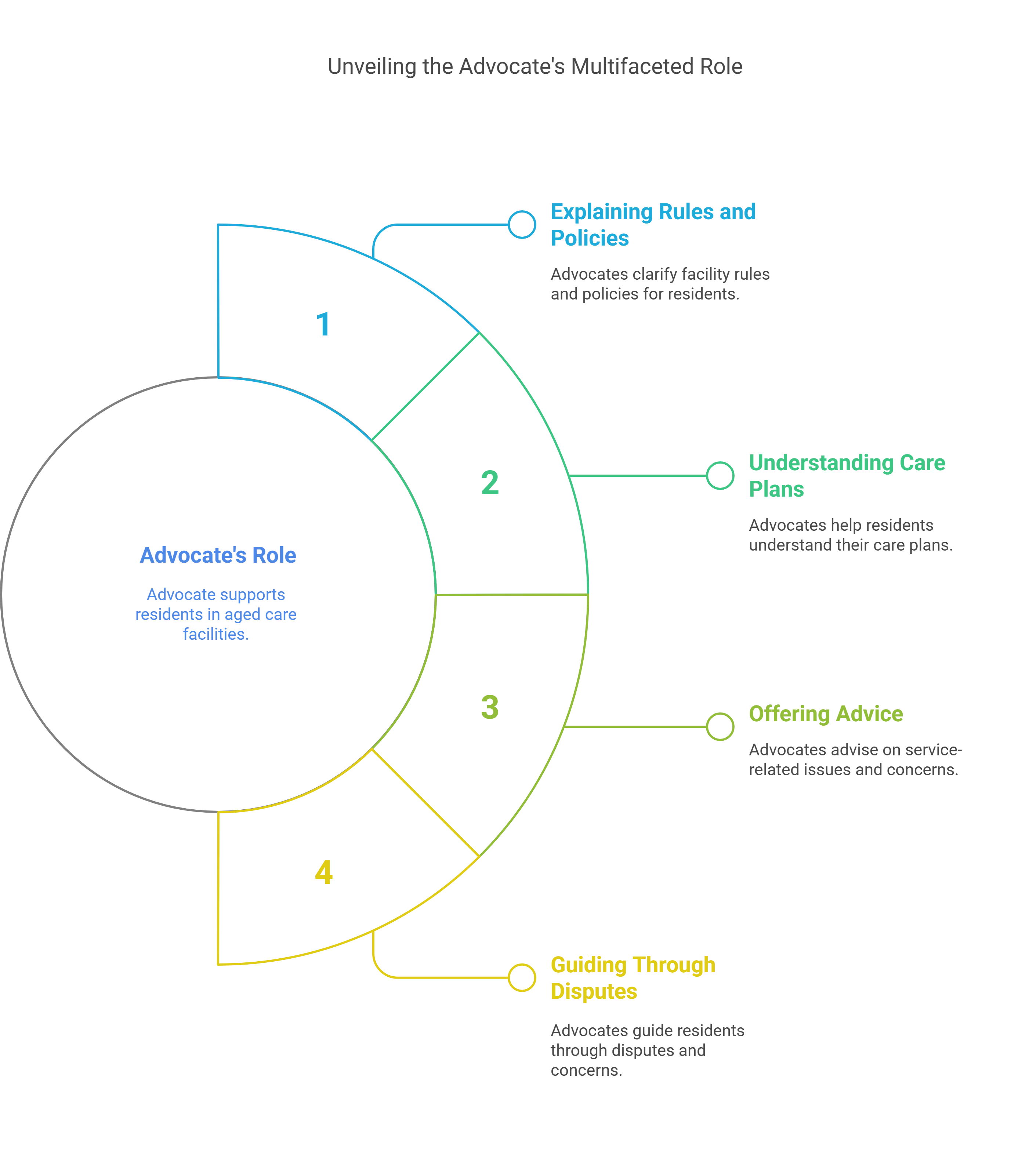An advocate is a person who stands up for the rights and needs of residents in aged care. An advocate listens carefully to the concerns of residents and their families. This person works to make sure that the voices of those living in aged care are heard by the care team and by other decision makers. An advocate explains rights and options, offers advice, and supports people in talking about their care choices.
The Role and Responsibilities of an Advocate

An advocate has many important responsibilities. The main role is to speak up for the resident when they face challenges in aged care. An advocate helps to clear up any misunderstandings between residents, their families, and the staff. They help by:.
- Explaining the rules and policies of the aged care facility.
- Assisting residents in understanding their care plans.
- Offering advice when there is a problem with the services received.
- Helping to guide residents through any disputes or concerns.
The advocate also works with the family. When a family member has questions about the care that a loved one receives, the advocate explains the options. They help all parties understand what choices are available so that every person involved knows what to expect.
How an Advocate Supports Residents and Families
The support from an advocate can be very important. When a resident feels that they are not being listened to, the advocate steps in to make sure that the issue is addressed. The advocate can:
- Meet with care providers to ask questions.
- Write letters or make notes that explain a resident’s needs.
- Attend meetings with the resident and their family to talk about care options.
.png)
This support builds trust between the resident, family members, and the care team. When every concern is shared openly, it makes the care environment better for everyone.
How an Advocate Operates in Aged Care
An advocate works as part of a team that may include other support persons or community groups. Often, advocacy is provided by community organizations or groups that have a strong knowledge of aged care. These groups have trained advocates who listen to the resident and then speak on their behalf. In many cases, the advocate is independent from the aged care facility. This independence makes it easier for the advocate to speak honestly and clearly without any pressure from the care provider.
Advocates take time to learn about the resident’s situation. They ask questions, check details, and make sure that the resident understands every part of the care plan. They are patient in explaining things in a simple way. The advocate listens without judgment and works to help residents feel more confident about their choices.
Benefits of Having an Advocate
.png)
There are many benefits when a resident has an advocate. One clear benefit is that the advocate gives a resident someone to talk to about worries. This person listens and makes sure that every concern is recorded. Another benefit is that the advocate helps to create clear records of conversations and decisions. These records can be helpful if there is ever a need to look back at what was agreed upon.
Having an advocate also helps families feel supported. When family members are involved, they learn more about the care options and understand the policies of the facility. With clear advice and guidance, families can work better with care providers. This clarity often leads to fewer conflicts and a better living environment for residents.
How to Find and Work with an Advocate
Residents and family members can ask the aged care facility for contact details of advocacy services. Many communities have local organizations that support older people. Once an advocate is contacted, a meeting is arranged. During this meeting, the advocate listens to all the concerns and asks questions to understand the situation. It is important that the resident and family share all details so that the advocate can work best on their behalf.
Working with an advocate is a team effort. The resident, family members, and advocate must communicate openly. When everyone works together, it becomes easier to resolve any issues that come up in aged care. The process is clear and written in simple language so that everyone understands the steps that will be taken.
Final Thoughts
An advocate in aged care is a person who stands up for the rights of residents and helps them speak out when needed. This role is important in making sure that residents are treated fairly and with respect. The advocate listens, explains care options, and works with everyone involved to solve problems. With clear guidance and open communication, an advocate can make a big difference in the care and comfort of residents. A strong advocacy support system builds trust and creates a more positive living environment for everyone in aged care.

.png)
.png)




